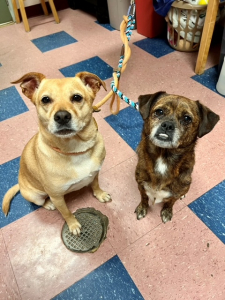MUNDANE MYSTERIES: How Long Can You Safely Keep Halloween Candy?

Whether you’ll be trick-or-treating tonight or buying discounted candy you’re your nearest drugstore tomorrow, Halloween is the season to go nuts when it comes to consuming sweet treats. I know it can be tempting to burn through your Halloween bag in one fell swoop, but if you exercise patience with your haul of Twix & Kit Kats, you’ll be thanking yourself later. But just how long can you safely keep this year’s Halloween candy before it goes bad?
The Halloween candy that will have the longest lifespan is dark chocolate; with its lack of dairy content, dark chocolate should last up to two years from the time it was made, while a regular milk chocolate Hershey’s bar usually goes bad after about 8 to 10 months. Both chocolates, though, can develop pale, chalky “blooms” over time, but that won’t make the chocolate inedible…it just means it’s drying out.
Hard candies & jelly candies (i.e., jelly beans) usually stay good for up to a year, so those can be kept around all the way up to next Halloween. Softer candies like candy corn, caramels, gum, and peanut butter cups are good for roughly 6 to 9 months. After that, you’ll need to toss ‘em out.
Now, the main qualification for all of this is properly storing your candy. Loose candies degrade a whole lot faster than treats in sealed wrappers, so if you open something then plan to finish it fairly soon thereafter. Also, avoid keeping your candy bowl in warm, sunny spots, since heat can (obviously) be bad for sweet treats. Dark, cool spots are where you want to keep your candy, since they help them stay fresher longer (and your family members are less likely to find them hidden there).
Got a Mundane Mystery you’d like solved? Send me an email: [email protected].
BROUGHT TO YOU BY: BPG USA
Wake Up Crew Highlights: October 31, 2023
Solei and Luna our Jay Day and The Day Home Team Pets of the Week
MUNDANE MYSTERIES: How Are Port-o-Potties Cleaned?

I took my daughter to Hersheypark last night for their “Dark Nights” Halloween event, when, out of the blue, she pointed at some port-o-potties & asked: “How do they clean those things?” As unexpected as the question was, it was totally valid. How DO they clean those things? I mean, disinfecting port-o-johns can’t be as simple as just wiping down the surfaces with antibacterial spray & dousing the hole with a bunch of bleach, right? So, how is it done?
To keep port-o-potties clean (or as clean as possible), sanitation workers have to use special equipment. Because, unlike the toilets in most of our homes, port-o-potties aren’t attached to a sewage system. Instead, waste goes into a large storage container beneath the seat. And that’s where all the waste stays until the holding tank can be attended to.
To clean a port-o-potty, that holding tank has to be emptied, hopefully well before it has a chance to overflow. And to do that, sanitation workers use a vacuum hose that’s connected to a large vacuum truck, which sucks out all the waste & moves it into a different storage tank that’s on the vacuum truck, itself. Then, once that’s done, the truck takes all the waste collected to a special facility to be treated.
But that’s not the end of the process (thankfully). There are also a few other elements that have to be added to a freshly emptied port-o-potty before it can once again be considered ready for public use. Once the tank’s been emptied, sanitation workers fill it with clean water & a blue chemical solution to dampen odors & suppress bacteria while the unit is in use.
And, while the cleaning of the port-o-potty tank might seem like it would be the hardest part of the process, it’s actually the sanitizing of the rest of the unit that ultimately ends up being even tougher & messier. Because workers also have to scrub down the urinal, the floor, the walls, and, of course, the toilet seat. And if you’ve ever used a port-o-potty at a live event with lots of people, then you probably have a good (and frightening) idea of just how disgusting that job must be.
So, we should all salute the real heroes out there: the sanitation workers who keep all the port-o-potties clean enough for us to use so that we can enjoy our concerts & festivals.
Got a Mundane Mystery you’d like solved? Send me an email: [email protected].
THIS MUNDANE MYSTERY IS BROUGHT TO YOU BY: BPG USA
Wake Up Crew Highlights: October 30, 2023
House of the Week – 10/27/23

Key features:
🛏️ Three cozy bedrooms
🛁 Two full baths
🛋️ Finished basement for extra space
🌞 Sun-kissed stamped concrete porch
🚗💼 Massive 30×40 detached garage/shop equipped with water & electricity.
Appreciate:
🚪 Classic wood doors inside & tranquil vibes outside. 🌺🐦 Perfect for gardening, observing wildlife or a peaceful evening.
Near:
🏫 Schools, historic battlefields 🏞️ & convenient routes 🛣️.
Don’t miss this blend of charm & convenience! Book a visit now! 📅📞 #CountryBlissInSharpsburg
Wake Up Crew highlights: October 27, 2023
Leshia Chandler
Win Cody Johnson Tickets
Your browser does not support iframes. Please visit https://digitalivy.com/BWMMTN.
